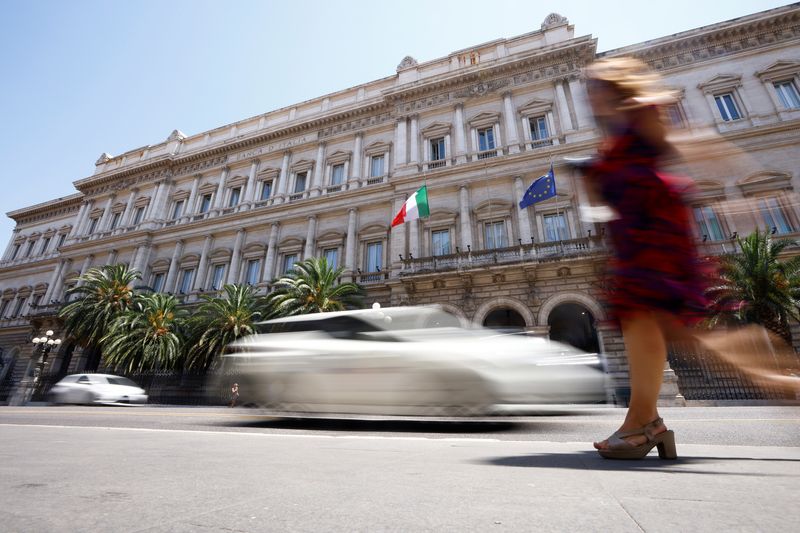By Giuseppe Fonte
ROME (Reuters) -The Italian government's 1% economic growth target for this year will be more difficult to reach after downward revisions made last week by national statistics bureau ISTAT, the country's central bank and budget watchdog UPB said on Monday.
The revisions mean "a mechanical downwards correction by 0.2 percentage points to the (government) estimate for the current year," the Bank of Italy's head of economics, Sergio Nicoletti Altimari, said in testimony to parliament.
All else being equal, this means 2024 gross domestic product growth in the euro zone's third largest economy would come in at 0.8% rather than the 1% government target set last month.
UPB chairman Lilia Cavallari said in her testimony that 2024 growth would probably fall short of the official goal by at least two tenths of a percentage point.
ISTAT on Friday lowered the year-on-year GDP growth rates for the first and second quarters and said so-called "acquired growth" at the end of the second quarter stood at 0.4%, down from the 0.6% estimated prior to the revisions.
As a result, if there were to be zero quarterly growth in the third and fourth quarters, full-year growth would come in at 0.4% from the previous year.
The Treasury's multi-year budget plan published in September forecast growth of 1.2% in 2025 and 1.1% the following year, but both the Bank of Italy and UPB warned the estimates were subject to possible downside risks.
The central bank called for a prudent approach to public finances, saying a steadily falling debt-to-GDP ratio should be a priority.
Italy is targeting this year's budget deficit at 3.8% of GDP, down sharply from 7.2% posted last year which was the highest in the 20-nation euro zone.
After declining to a projected 3.3% of GDP next year, the deficit is targeted at 2.8% in 2026, below the EU's 3% ceiling.

Under current trends, the government estimates that the deficit is on course for lower ratios of 2.9% of GDP in 2025 and 2.1% in 2026, allowing some leeway for additional spending measures or tax cuts.
However, the Bank of Italy warned that small deviations from the government's plan could make it difficult to bring the deficit below the EU's 3% of GDP ceiling in 2026, as pledged.